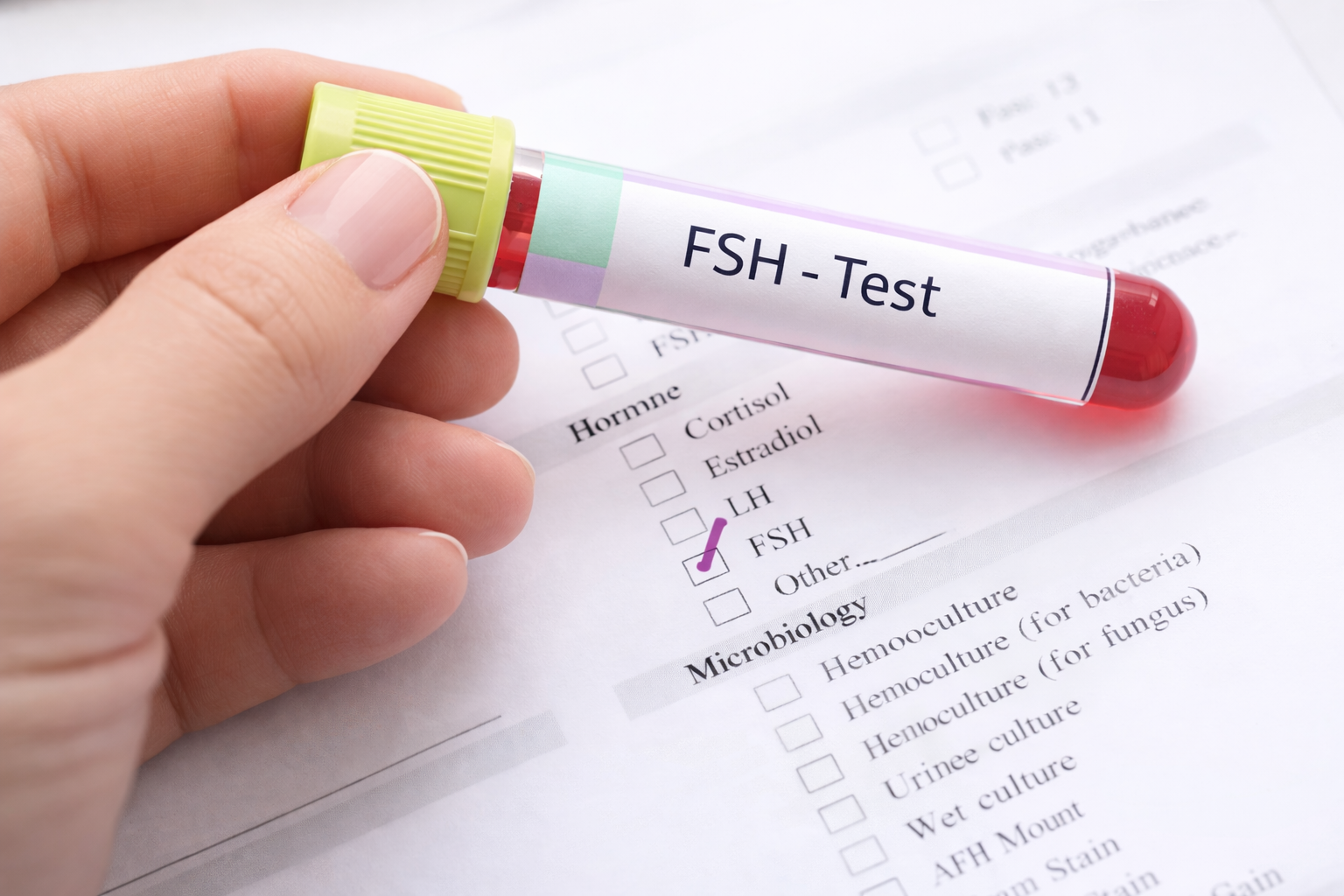Hormonal imbalances can be caused by anything from lifestyle factors to underlying medical conditions. Here’s what you need to know.

Hormonal imbalances can be caused by anything from lifestyle factors to underlying medical conditions. Here’s what you need to know.
It’s no secret hormones play a major role in your body. From growth and metabolism to mood and reproduction, hormones are responsible for a variety of functions—and when they get unbalanced, these functions can be disrupted.
But what exactly causes a hormonal imbalance? How can you tell if you have one, and what’s at the source of it? In this guide, we’ll go over the top causes of hormonal imbalances, including symptoms and how to get relief.
What is a hormonal imbalance?
A hormonal imbalance occurs when your body produces too much or too little of one or more hormones.
While some fluctuations in your hormones are normal, like when your luteinizing hormone rises during your menstrual cycle, a hormone imbalance is classified as a fluctuation or change that’s irregular or disrupts your natural hormone functions.
These imbalances can be temporary or chronic, and can affect people of all ages, genders, life circumstances, and more.
What causes hormonal imbalances?
Hormonal imbalances can stem from a variety of factors, from natural life shifts to underlying medical conditions.
Natural life stages
Puberty, pregnancy, breastfeeding, and perimenopause are all marked by significant hormonal shifts. While these are natural transitions, they can sometimes lead to temporary imbalances as the body adjusts.
Lifestyle factors
Our lifestyle can significantly impact our hormonal health, including:
- Stress: When you experience stress, the hypothalamus triggers the release of corticotropin-releasing hormone (CRH), which stimulates the pituitary gland to release adrenocorticotropic hormone (ACTH). ACTH then signals the adrenal glands to produce cortisol. While cortisol is essential for short-term stress response, chronic stress and persistently elevated cortisol levels can disrupt the balance of other hormones, including sex hormones and thyroid hormones.
- Diet: A diet high in processed foods, sugar, and unhealthy fats can lead to insulin resistance, a condition in which the body's cells become less responsive to insulin. Insulin is a hormone produced by the pancreas that regulates blood sugar levels. Insulin resistance can lead to elevated blood sugar levels, which can contribute to type 2 diabetes, weight gain, and other health issues.
- Lack of sleep: ISleep is crucial for hormone regulation. Growth hormone, which is essential for cell regeneration, muscle growth, and metabolism, is primarily released during deep sleep. Sleep deprivation can also disrupt the production of cortisol, melatonin (a hormone that regulates sleep-wake cycles), and reproductive hormones.
- Obesity: Excess body weight can affect hormone production and metabolism. Fat tissue, especially visceral fat, acts as an endocrine organ, producing hormones and inflammatory molecules that can disrupt hormone signaling and contribute to insulin resistance. Obesity is associated with increased risk of several hormonal imbalances, including PCOS, type 2 diabetes, and thyroid disorders.
Underlying medical conditions
Certain medication conditions can directly impact hormone production, including:
- Thyroid disorders: The thyroid gland produces thyroid hormones (T4 and T3), which regulate metabolism, body temperature, and heart rate. Hypothyroidism, an underactive thyroid, occurs when the thyroid gland doesn't produce enough thyroid hormones. Hyperthyroidism, an overactive thyroid, occurs when the thyroid gland produces too many thyroid hormones.
- Polycystic ovary syndrome (PCOS): This common hormonal disorder in women can cause irregular periods, ovarian cysts, and elevated levels of androgens (male hormones).
- Diabetes: Both types of diabetes can lead to hormonal imbalances, including elevated blood sugar levels and impaired insulin signaling.Type 1 diabetes is an autoimmune disease in which the body's immune system attacks the cells in the pancreas that produce insulin. Type 2 diabetes is a condition in which the body becomes resistant to insulin or doesn't produce enough insulin.
- Adrenal insufficiency: Adrenal insufficiency occurs when the adrenal glands don't produce enough cortisol. Cortisol is a hormone essential for stress response, blood sugar regulation, and immune function.
- Tumors: Tumors on endocrine glands, such as the pituitary, thyroid, or adrenal glands, can disrupt hormone production. These tumors can either overproduce hormones or interfere with the gland's normal function.
Medications
Certain medications, including hormone therapies and some antidepressants, can affect hormone levels. That’s because some medications interfere with the glands that produce hormones, either increasing or decreasing their output. For example, certain medications used to treat thyroid conditions can sometimes cause the thyroid to produce too much or too little hormone.
Common medications that can affect hormone levels include hormonal birth control, steroids, antidepressants, and thyroid medications.
It's important to note that not everyone who takes these medications will experience hormonal imbalances. However, if you are concerned about the potential effects of a medication on your hormones, it is important to talk to your doctor.
Signs of a hormonal imbalance
How do you know if you have a hormonal imbalance in the first place? While the symptoms can vary widely depending on which hormones are affected, common signs of a hormonal imbalance include:
- Weight gain or loss
- Fatigue
- Mood changes
- Sleep disturbances
- Changes in appetite
- Skin problems
- Changes in libido
- Irregular periods
- Fertility problems
- Hair loss or thinning
Again, hormonal imbalances can manifest as a wide range of symptoms depending on the type of imbalance. For example, thyroid imbalances can manifest as weight changes, fatigue, and mood swings, while imbalances in sex hormones can lead to changes in libido, menstrual irregularities, and fertility issues.
How to treat a hormonal imbalance
Treating a hormonal imbalance depends on the underlying cause and the specific hormones involved. For example, if your hormonal imbalance is caused by PCOS, you may work to manage PCOS to help manage the imbalance; if your hormonal imbalance is caused by lifestyle factors, you may institute lifestyle changes.
Treatment options may include:
- Lifestyle changes: Adopting a healthy diet, managing stress, getting enough sleep, and regular exercise can often help restore hormonal balance.
- Medications: Hormone replacement therapy, medication for specific conditions like thyroid disorders or PCOS, or other medications may be prescribed.
- Therapy: In some cases, therapy may be helpful to manage mood changes or other emotional symptoms associated with hormonal imbalances.
It's crucial to consult with a healthcare professional to get a proper diagnosis and personalized treatment plan.
Causes of hormonal imbalance: the bottom line
Hormonal imbalances occur when there is too much or too little of one or more hormones. These imbalances can be caused by a variety of factors, from lifestyle factors like diet and stress to medical conditions like PCOS and thyroid disorders. If you’re experiencing hormonal imbalance symptoms, it can be helpful to see a healthcare professional to figure out the underlying cause.
Many people experience hormonal imbalances at some point in their lives. By understanding the causes, recognizing the signs, and seeking professional help, you can take control of your hormonal health and improve your overall well-being.
About the author

Sources
- Better Health Channel. (n.d.). Obesity and hormones.
- Johns Hopkins Medicine. (n.d.). Thyroid Disorders in Women.
- Knezevic, E., Nenic, K., Milanovic, V., & Knezevic, N. N. (2023). The Role of Cortisol in Chronic Stress, Neurodegenerative Diseases, and Psychological Disorders.
- Volk, K. M., Pogrebna, V. V., Roberts, J. A., Zachry, J. E., Blythe, S. N., & Toporikova, N. (2017). High-Fat, High-Sugar Diet Disrupts the Preovulatory Hormone Surge and Induces Cystic Ovaries in Cycling Female Rats.
- Zakariah-Akoto, S., Abuaku, B., Egbi, G., Klu, B. E. K., Kyei-Baafour, E., Ofori, M. F., Ahorlu, C. S., & Yeboah-Manu, D. (2024). Knowledge, perceptions, and management of symptoms of hormonal imbalance among adolescent girls in selected schools in Ghana: a qualitative exploratory study.
About the Oova Blog:
Our content is developed with a commitment to high editorial standards and reliability. We prioritize referencing reputable sources and sharing where our insights come from. The Oova Blog is intended for informational purposes only and is never a substitute for professional medical advice. Always consult a healthcare provider before making any health decisions.



